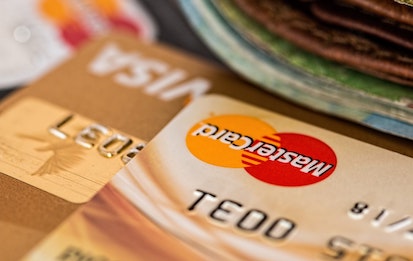14 Feb Excessive surcharge ban – make sure you’re not overcharging
Did you know about the excessive surcharge ban? Progressive Legal has you covered.
An excessive surcharge ban came into effect. If you’re taking EFTPOS or credit payments from customers, make sure you’re up to date with it.
Do you take EFTPOS?
If you’re a small business, and by ‘small business’ we mean…
- Turnover less than $25m
- Less than 50 employees
- Less than $125m in assets

…and your customers pay you by EFTPOS or credit card, did you know that from 1 September 2017, an excessive surcharge ban comes into effect? Any surcharge you charge the customers MUST be limited to the actual cost to you of the transaction.
(note: if you are a large business, these rules already apply to you and the excessive surcharge ban came into effect on 1 September 2016!)
Contact Us
What does the excessive surcharge ban apply to?
The ban on excessive surcharges applies from 1 September to small businesses who accept payment by EFTPOS, Visa, Mastercard or American Express cards issued by Australian banks.
It applies to:
- debit cards,
- credit cards,
- prepaid cards.
Any surcharge must be limited to the actual costs of the transaction which is charged to the business by an Australian bank or a bank which operates in Australia.
Your bank should have already sent to you information about how much they charge you for each EFTPOS or credit card transaction – if they have not, you should contact your bank to check the details.
What about differences between EFTPOS and credit card payments?
Different payment methods may attract different charges – this is because the different companies charge the banks different amounts.
If you choose to accept multiple forms of payment, which attract different charges, you can choose to charge a separate surcharge for each method of payment or you can charge a single fee.
***IMPORTANT***
If you choose to charge a single fee, you must choose the lowest fee. You cannot add them together or average them out without risking overcharging someone who uses the cheapest payment method.
Also, you can choose not to charge a surcharge at all and pay the banks the fee yourself as a cost of doing business as a lot of larger firms do – it is up to you.
Are there any exceptions to the excessive surcharge ban?
The ban does not apply to BPay, PayPal, Diners Club or American Express cards issued directly by American Express.
The Australian Competition and Consumer Commission (ACCC) is responsible for enforcing the ban – they will act on complaints from consumers. Penalties for excessive charging range from a fine of $12,600 for a company or $2,520 for an individual or sole trader to $1,358,910 if a company is taken to court for breaching the ban.
Want more info?
More information is available, including guidance information for businesses and consumers, on the ACCC website at www.accc.gov.au/update/ban-on-excessive-payment-surcharging
Contact us today if you require any assistance with the Commercial Law requirements.
(c) Progressive Legal Pty Ltd – All legal rights reserved (2020)
Contact Us
Related Articles

Ian Aldridge is the Founder and Principal Lawyer Director at Progressive Legal. He has over 20 years experience in advising businesses in Australia and the UK. After practising in commercial litigation for 12 years in major Australian and International Law Firms, he decided to set up a NewLaw law firm in Australia and assist growing Australian businesses. Since 2014, he has advised over 5,000 small businesses in relation to Intellectual Property Law, Commercial, Dispute Resolution, Workplace and Privacy Law. He has strived to build a law firm that takes a different approach to providing legal services. A truly client-focused law firm, Ian has built Progressive Legal that strives to deliver on predictable costs, excellent communication and care for his clients. As a legal pioneer, Ian has truly changed the way legal services are being provided in Australia, by building Legal Shield™, a legal subscription to obtain tailored legal documents and advice in a front-loaded retainer package, a world-first. He has a double degree in Law (Hons) and Economics (with a marketing major). He was admitted to the Supreme Court of NSW in 2005.



